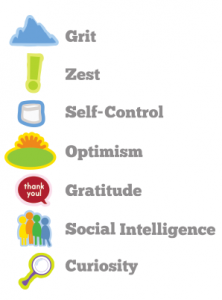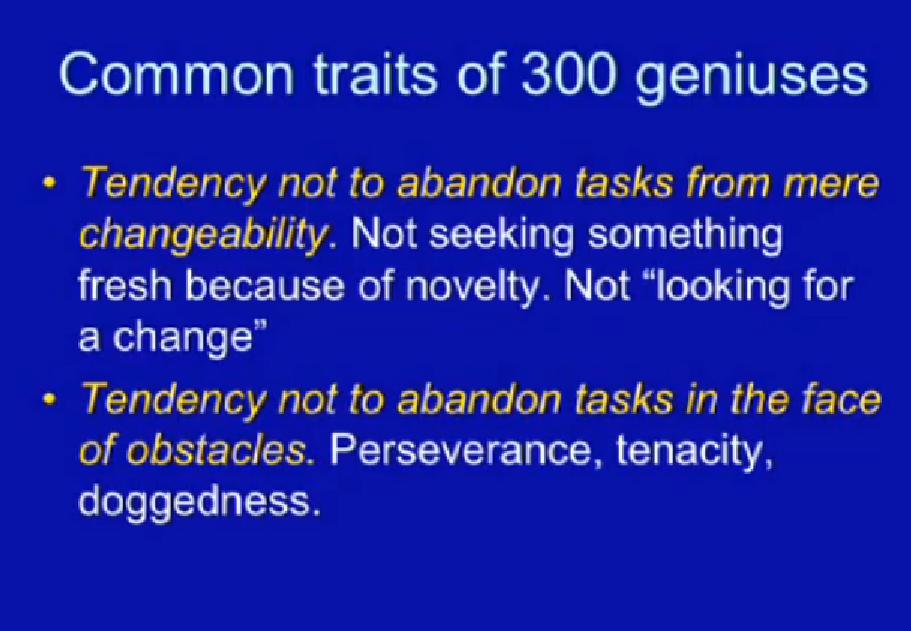Though the Common Core State Standards (CCSS) are, in my opinion, a common sense approach to preparing students for the worlds of college and careers, they intentionally leave out any mention of non-academic skills needed for post-secondary flourishing.
And frankly, that's what schools are for: to promote long-term, widespread human flourishing.
So what are those non-academic skills that so often make people of average intelligence end up more successful in life than people of above-average intelligence?
There's a lot of coordinated and focused work being done around this question right now, ranging from a Nobel Prize-winning economist to everyday teachers like you and me. James Heckman (the Nobel winner) calls these success-yielding factors “soft skills” or “non-cognitive skills” or “learnable personality traits.” But when I first came across them, it was under the label “character strengths” via KIPP schools in New York City.
“Highly predictive” character strengths
Through collaborations with Dr. Martin Seligman (University of Pennsylvania), Dr. Chris Peterson (University of Michigan — Go Blue!), and Dr. Angela Duckworth (University of Pennsylvania), KIPP has developed a focused list of seven character strengths that are highly predictive of lives that are “engaged, meaningful, and purposeful”:
This is an amazing list of strengths, and the research supporting them is equally cool. For example, Dr. Duckworth gave a simple, 10-question survey about grit — perseverance, essentially — to incoming freshman cadets at West Point. After a period of time, Duckworth's simple survey ended up being more predictive of success than the highly sophisticated measurement tools West Point has traditionally used.
At one point in an awesome TED talk that Duckworth gave, she mentions a study in which a researcher read the biographies of over 300 geniuses from throughout world history. The common traits found throughout these “geniuses” were, surprisingly, not really talent.
For this reason and many more, myself and a few colleagues have been implementing the seven character strengths in our classes since last spring. Though it's been a slow start, we are starting to get qualitative feedback that points to the effectiveness of having a shared vocabulary with students for speaking about success-yielding, non-cognitive skills.
Although this is a post, I've also created a permanent “Character Strengths” page in the resources section of Teaching the Core.
Going deeper:
- KIPP Schools — From what I know, they lead the way in making character strengths as applicable to a school setting as possible.
- “What if the Secret to Success is Failure?” — this is the article that introduced me to the compelling and simple list of 8 highly predictive character strengths.
- OneGoal — an innovative college persistence program working to make college graduation possible for all students.
- “True Grit: Can Perseverance be Taught?” — Angela Duckworth's TEDxBlue Talk.
- “An emerging theory about what to teach kids” — an engaging episode of This American Life, in which Paul Tough, James Heckman, and others lay out the growing case for infusing soft skills into curricula.
- “Struggle for Smarts? How Eastern and Western Cultures Tackle Learning” — Americans tend to see struggle as a sign of low ability. Asian cultures see it as an opportunity.
- A list of character strengths — including but not limited to the highly predictive ones that KIPP focuses on.


Leave a Reply